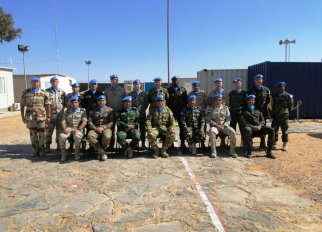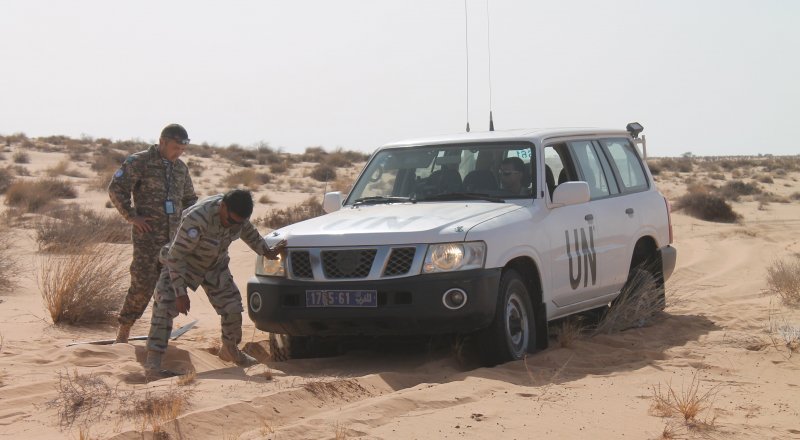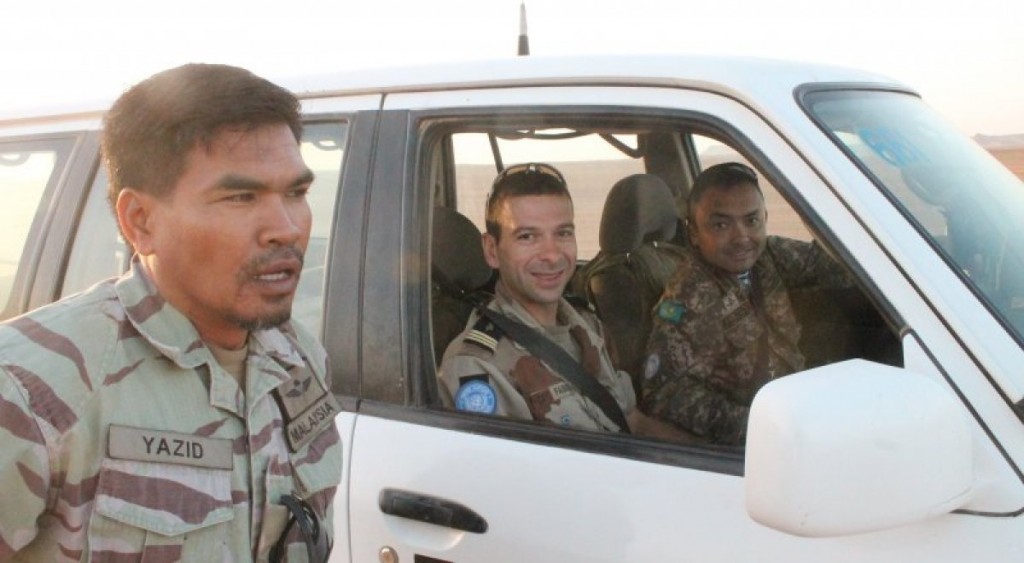ASTANA – Captain Temirlan Musapirov, the first Kazakh Armed Forces officer to travel to Western Sahara as part of the United Nations (UN) mission in Western Sahara, has returned to Kazakhstan, reported the Kazakh Ministry of Defence press service.
“In Western Sahara, there are completely different people assembled as military observers. There you realise that no matter what your military rank, age or nationality, you have to remain neutral and to remember that you will be judged on the whole country. This is very a responsible mission,” said the officer, who served in the African nation for a year with representatives from more than 30 countries to fulfill the tasks of the military observers.
Musapirov has subsequently started his duty with KAZBAT, the second Kazakhstan peacekeeping battalion. Despite the fact that serving in a foreign country away from family members is not easy, yet necessary, he expressed his readiness to go back to the mission.
Participation as a military observer with UN missions requires a high-level knowledge of the English language in order to work with documents and the driving skills for special cars, as well as the successful completion of certain UN training courses.

Six Kazakh officers are currently serving in UN missions in Western Sahara (United Nations Mission for the Referendum in Western Sahara or MINURSO) and Côte d’Ivoire (UNOCI or United Nations Operation in Côte d’Ivoire). Kazakhstan is ready to send up to five officers each to the UN missions in Western Sahara, Cote d’Ivoire, Haiti and Liberia.
The UN has been seeking a settlement in Western Sahara since the Spanish withdrawal in 1976 and ensuing fighting between Morocco, which reintegrated the territory, and the Frente Polisario. Despite the continued divergence in positions, the renewed dialogue marked the first direct negotiations between the parties regarding the conflict in more than seven years. Throughout this period, MINURSO continued to fulfil its mandate by monitoring the ceasefire as well as supporting a range of assistance programmes to address the plight of displaced and separated Sahrawi families.
UNOCI has remained on the ground to protect civilians, provide good offices and support the Ivorian government in disarmament, demobilisation and reintegration (DDR) of former combatants, as well as on security sector reform, and to monitor and promote human rights.
 The United Nations Mission in Haiti (UNMIH) mandate assists the nation’s democratic government in fulfilling its responsibilities in connection with sustaining a secure and stable environment established during the multinational phase and protecting international personnel and key installations, the professionalisation of the Haitian armed forces and the creation of a separate police force. UNMIH was also to assist the Haitian legitimate constitutional authorities in establishing an environment conducive to the organisation of free and fair legislative elections to be called by those authorities.
The United Nations Mission in Haiti (UNMIH) mandate assists the nation’s democratic government in fulfilling its responsibilities in connection with sustaining a secure and stable environment established during the multinational phase and protecting international personnel and key installations, the professionalisation of the Haitian armed forces and the creation of a separate police force. UNMIH was also to assist the Haitian legitimate constitutional authorities in establishing an environment conducive to the organisation of free and fair legislative elections to be called by those authorities.
The United Nations Mission in Liberia (UNMIL) was established by Security Council resolution 1509 (2003) on Sept. 19, 2003 to support the implementation of the ceasefire agreement and the peace process; protect UN staff, facilities and civilians and support humanitarian and human rights activities; as well as assist in national security reform, including national police training and formation of a new, restructured military.


